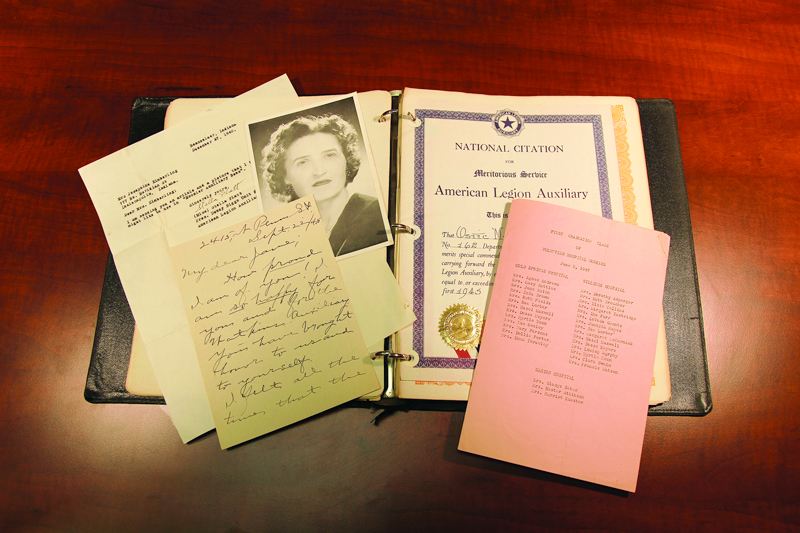
Let’s say in preparation for the American Legion Auxiliary’s centennial celebration, you volunteered to write your unit’s history. You start by perusing files, digging through boxes, and finding records and previous unit histories. But the history you come up with has large gaps and some unexplainable events.
Here are some tips to help you fill the gaps, connect the dots, and entice your readers:
Let’s get digital. If you’re looking for history from a specific time, try your library’s newspaper archives. Many libraries have digitized these collections. Often, these files aren’t indexed or coded, which could mean a lot of sitting and scrolling in an effort to find what you want.
Post it. Another good historical resource is your American Legion post. Many Auxiliary units are joint ventures with the Sons of The American Legion and the Legion post. Remember that many posts and units have a small space or no space at all. Some items might be in the possession of members or even in storage.
Get personal. Don’t overlook what could be your most valuable resource — current and past members of units and posts. Consider current members who can’t make it to meetings because of a disability or old age. Just because they’re not active members anymore, doesn’t mean their memories have disappeared. Some members or former members might have things in their possession.
Partner up. If your ALA unit often partners with community organizations for events, reach out to the frequent partners. They might be able to recall some things that Auxiliary members can’t. And, as a bonus, they’ll remember it from a different perspective. Consider looking for information in other community outlets too such as historical societies or even libraries.
Have faith. American Legion Auxiliary units often partner with local churches. When looking for information, request the help of a church secretary. If they don’t have a secretary, then go to the minister — who else knows their congregation better? The minister could even point you to a longtime member of the congregation who might remember something.
So, now you have all of the raw information and you’re ready to compile it into a history of your unit. Below are some tips and best practices from ALA National Headquarters’ Archivist and Data Projects Coordinator Cathi Taylor.
“A unit’s history is not just about what activities it did; it’s about the people who made up the unit as well. When you talk about the charter members of a unit, I think it’s interesting to understand why they came together,” Taylor said. “You can say they wanted to serve veterans, but what was their real story? Did they lose a brother during World War I? Did they serve in World War II? What could have been their reason for pulling that unit together? You might not know their exact story, but you can try to understand what their motivations might have been. Each of those women have a story.
“In the spring, I was going out to lunch and I saw a sign for a garage sale. I didn’t think much about it. A couple days later, I noticed the sign had more information on it. A veteran had gone broke, and they were having this garage sale to help him. Those are the compelling things in a community that help it come together. Don’t just say, ‘We had a garage sale.’ If you had a garage sale to help someone whose family members had come home injured, that’s the story you should include. Just having a garage sale is not the whole story.”
What kinds of historical items are housed in your unit or post home? Got a very specific question about how to archive these items? For example, what is the best way to clean old plaques hanging on your walls?
We’ll answer your burning questions! Email Historian@ALAforVeterans.org.
In the spirit of Service, Not Self, the mission of the American Legion Auxiliary is to support The American Legion and to honor the sacrifice of those who serve by enhancing the lives of our veterans, military, and their families, both at home and abroad. For God and Country, we advocate for veterans, educate our citizens, mentor youth, and promote patriotism, good citizenship, peace and security.